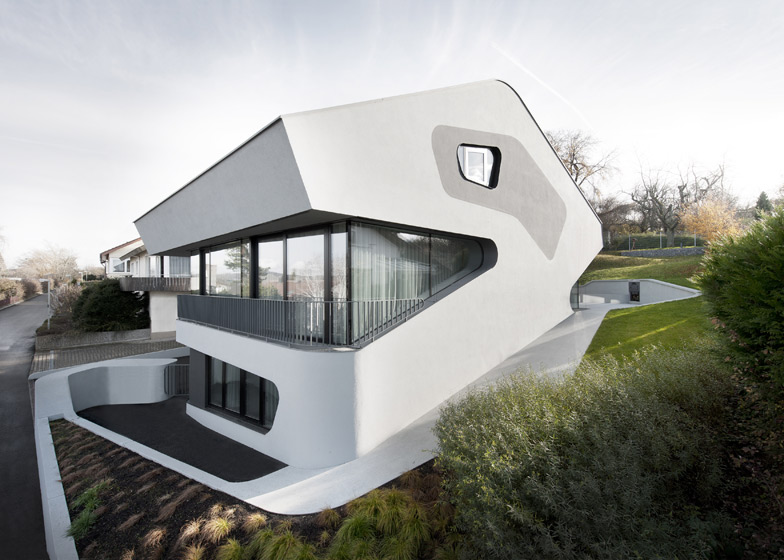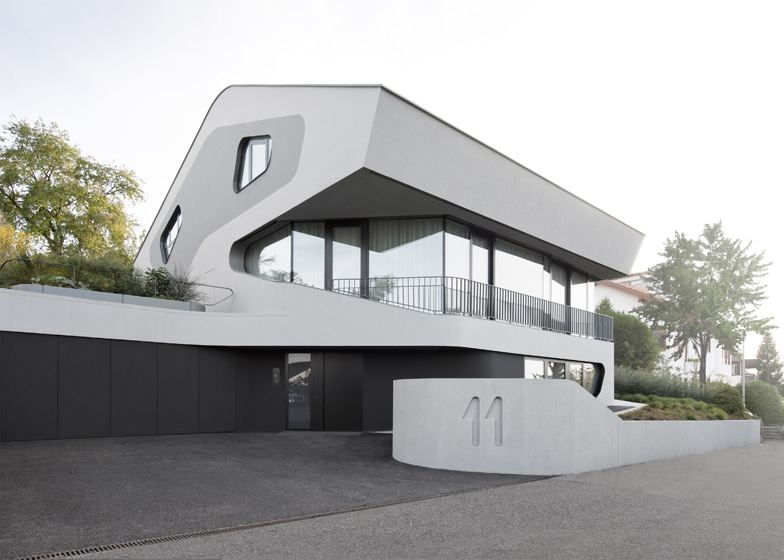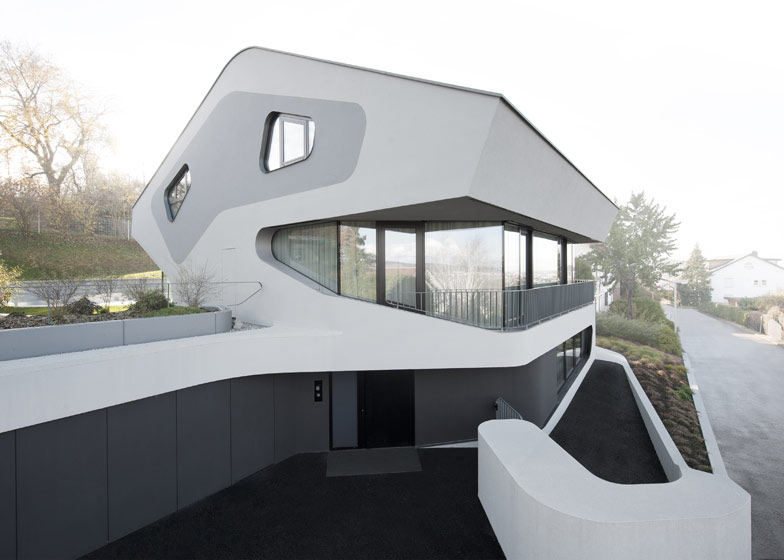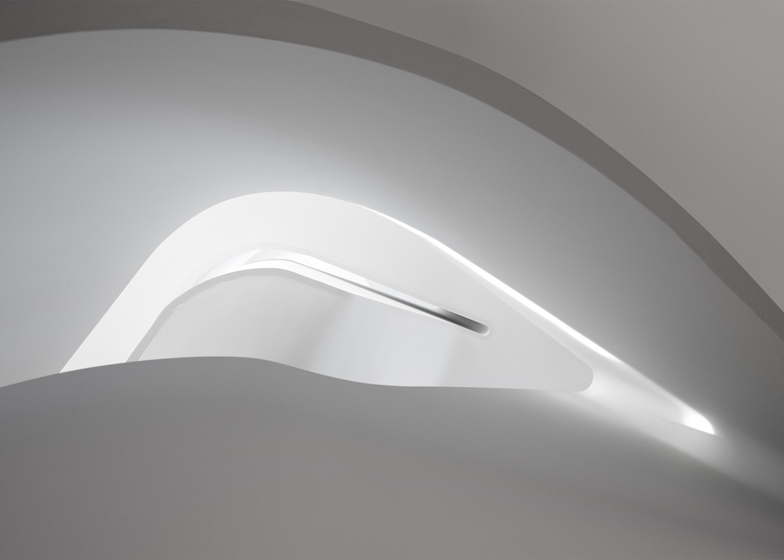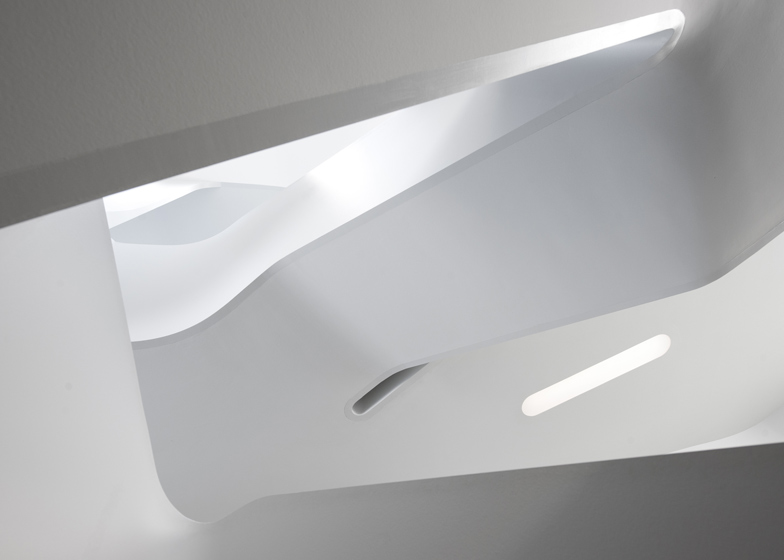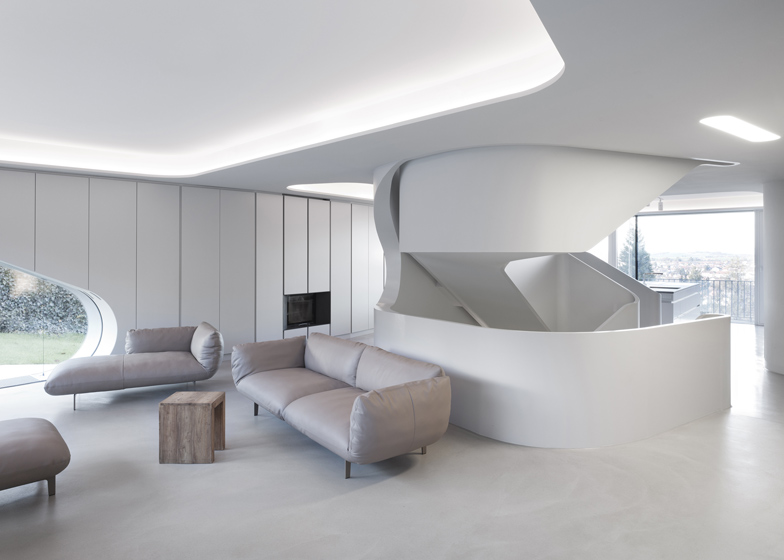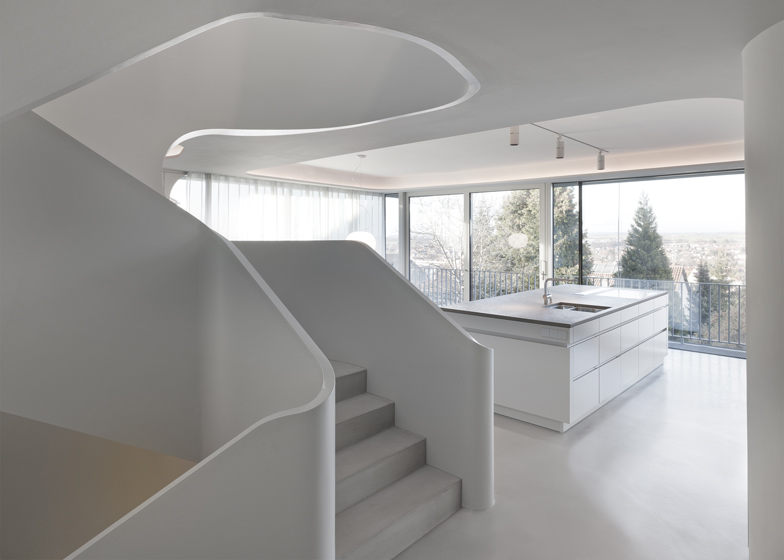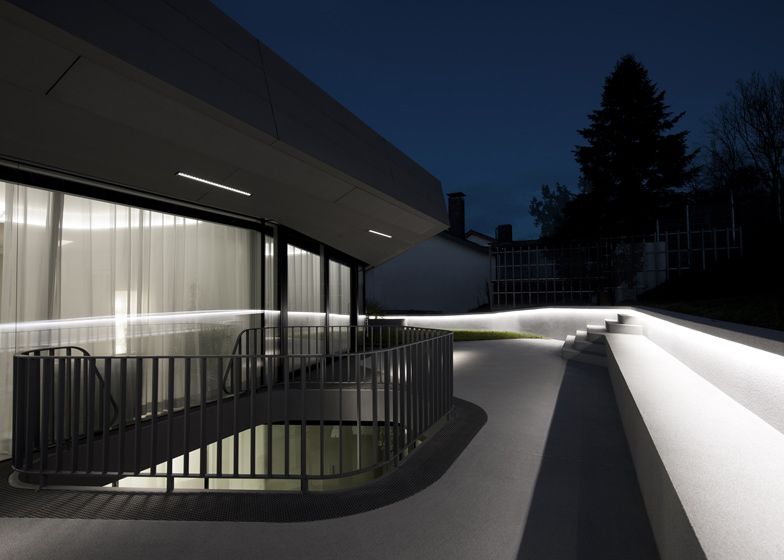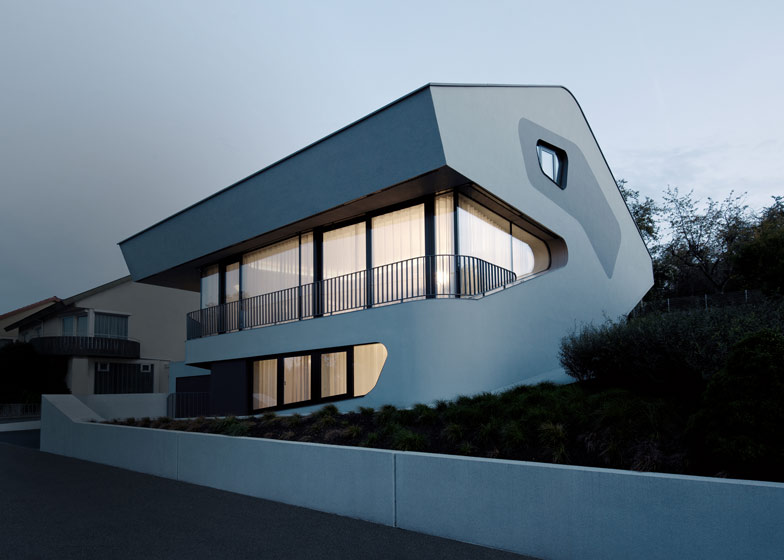The rounded forms of this house near Stuttgart by German studio J Mayer H conjure up images of a dinosaur's head with big eyes and bared teeth (+ slideshow).
Named OLS House, the three-storey concrete residence is positioned on a sloping site in a suburban neighbourhood and functions as the home for a family of four.
The clients asked J Mayer H to bring the view of the nearby valley into the house, so the architects added a line of floor-to-ceiling windows that wrap around the front corners. This glazing and the railings in front look like the teeth of the building, while rounded windows on either side look like huge eyes.
The house was constructed from reinforced concrete, then coated with two different shades of render to emphasise the rounded forms of the walls and roof.
A discrete entrance is positioned on one side and leads directly into the centre of the house. Here, a curving concrete staircase winds between the floors, leading up from spas and utility rooms on the ground floor to living and dining rooms on the first floor and bedrooms on the top floor.
Each room is outlined by curving partitions and furniture is built into the walls, creating functional storage areas for residents.
The middle floor opens out to both a balcony along the front of the building and a terrace at the rear, while the second floor also features a small sheltered balcony.
German architect Jürgen Mayer H founded J Mayer H Architects in 1996. One of the studio's best-known designs is the Metropol Parasol, a giant latticed timber canopy in Seville, while other projects include a knobbly observation tower between Turkey and Georgia and a foster home for children and adolescents in Hamburg, Germany. See more architecture by J Mayer H
Photography is by David Franck.
Here's some more information from the architects:
OLS HOUSE near Stuttgart, Germany
The new house is on a plot of land near Stuttgart, on a hillside with a generous view of the valley. The owners wanted a new home that would bring this view to life even inside of the building. The house is in a residential area with conventional developments, most of which date from the 1960s.
The new, 4-person family home is divided into an elevated ground floor with entrance area, utility room and spa, and a second floor with an open, flowing floor plan containing the living, dining and kitchen areas. Full-height glazing provides a free view of the valley and terrace looking over the garden area. Upstairs are the sleeping areas, dressing rooms and bathrooms. The central design element is a sculptural staircase that connects all three levels.
The house was built as a reinforced concrete construction. The facade consists of one heat-insulating compound system and an aluminum and glass facade. Slats and anti-glare sheeting provide integrated sun protection, protecting it against heat. All of the lightweight partition walls inside are made of drywall. The floor is a seamless layer of screed. The roof with the deep, recessed balcony was built with pre-weathered zinc plate cladding and is fitted with solar panels.
Team: Juergen Mayer H, Marcus Blum (Project Architect), Sebastian Finckh, Paul Angelier, Hugo Reis, Julian Blümle
Project: 2009-2011
Completion: September 2011
Client: Private
Architect on Site: AB Wiesler + Michael Gruber, Stuttgart
Structural Engineer: Gunter Kopp, Leutenbach/ Nellmersbach
Service Engineers: IB Funk und Partner, Leutenbach
Building Physics: Kurz&Fischer GmbH, Winnenden
Function: Private House, near Stuttgart, Germany
Site area: 891 sqm
Building area: 306 sqm
Total floor area: 488 sqm
Number of floors: 3
Height of the building: 10,43 m
Structure: reinforced concrete, brick, roof: steel
Principal exterior material: EIFS, glass, zinc, rooftiles
Principal interior material: wood, plasterboard, creative floor
Designing period: 08/09 – 04/10
Construction period: 04/10 – 09/11
Above: site plan
Above: ground floor plan
Above: first floor plan
Above: second floor plan
Above: long section
Above: front elevation
Above: side elevation
Above: rear elevation
Above: side elevation

